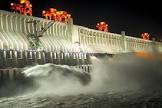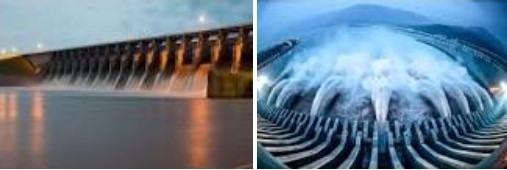By Thandisizwe Mgudlwa
CAPE TOWN, South Africa –Access to energy currently stands low in Africa compared to other regions, with more than 600 million Africans living without electricity services while 900 million lack access to clean cooking facilities
The 41st Ordinary Session of the Executive Council has adopted the African Common Position on Energy Access and Just Transition.
This milestone took place on the 15th of July 2022 in Addis Ababa, Ethiopia.The development has been hailed as a comprehensive approach that charts Africa’s short, medium, and long-term energy development pathways to accelerate universal energy access and transition without compromising its development imperatives.
Led by the African Union Commission (AUC) in collaboration with other Pan-African institutions, the Common Position stipulates that Africa will continue to deploy all forms of its abundant energy resources
including renewable and non-renewable energy to address energy demand.

Natural gas, green and low carbon hydrogen and nuclear energy will therefore be expected to play a crucial role in expanding modern energy access in the short to medium term while enhancing the uptake
of renewables in the long term for low carbon and climate-resilient trajectory.
The African Union Commissioner for Infrastructure and Energy Amani Abou-Zeid has called the adoption of the Common Position ‘a major step forward’.
“This is an important and major step forward towards ensuring and confirming Africa’s right for a differentiated path towards the goal of universal access to energy, ensuring energy security for our
Continent and strengthening its resilience, while at the same time acting responsibly towards our planet by improving the energy mix.” said Dr Abou-Zeid emphasising that it is a timely measure to push for
favourable outcomes and tangible investments in energy and infrastructure at COP 27 set to take place in November 2022 in Sharm El Shiekh, Egypt.
Access to energy currently stands low in Africa compared to other regions, with more than 600 million Africans living without electricity services while 900 million lack access to clean cooking facilities.
And the African Common Position encourages striking a balance between ensuring access to electricity to catalysing the much-needed socio-economic growth in Africa and smoothly transitioning towards an
energy system based on renewable and clean energy sources matching the ambitions of Agenda 2063.
Moreover, during a presser on the margins of the 4th Mid-Year Coordination Meeting happening in Lusaka, Zambia, Commissioner Abou-Zeid stated that the African Union attaches high importance to the implementation of ambitious energy goals designed to build resilient energy infrastructure in the continent calling on stakeholders to back initiatives such as the African Single Energy Market (AfSEM), the Continental Power System Masterplan (CMP) and the Program for Infrastructure Development in Africa (PIDA).
“I urge stakeholders and potential public and private investors to accept and back Africa’s Common Position for Energy Access and Just Transition and support the African Union’s various energy security initiatives needed to develop technical and financial instruments and packages to fast-track African’s right to universal access to affordable and reliable electricity.”
According to the AU, mobilization of adequate financing, accelerating regional integration to create large markets for energy development, harmonization of policies and regulatory frameworks and encouraging
technology transfer and capacity building are among the pillars of implementation of the Common Position to accelerate energy access and just transition in the continent.

